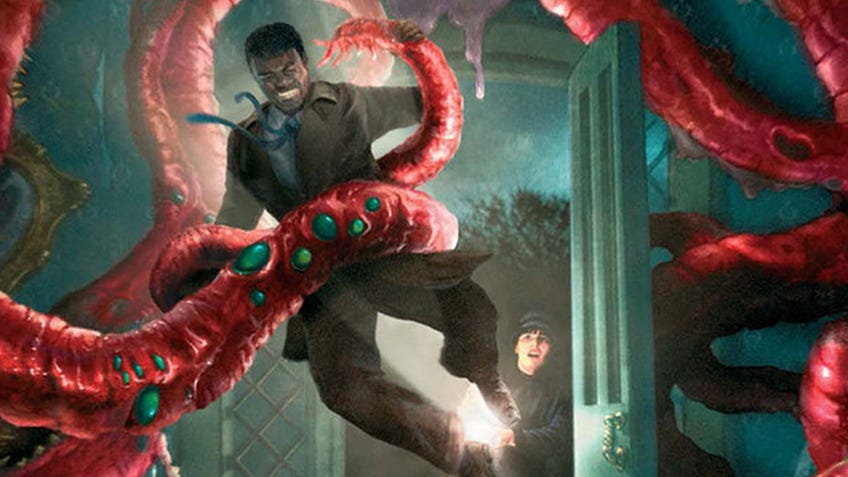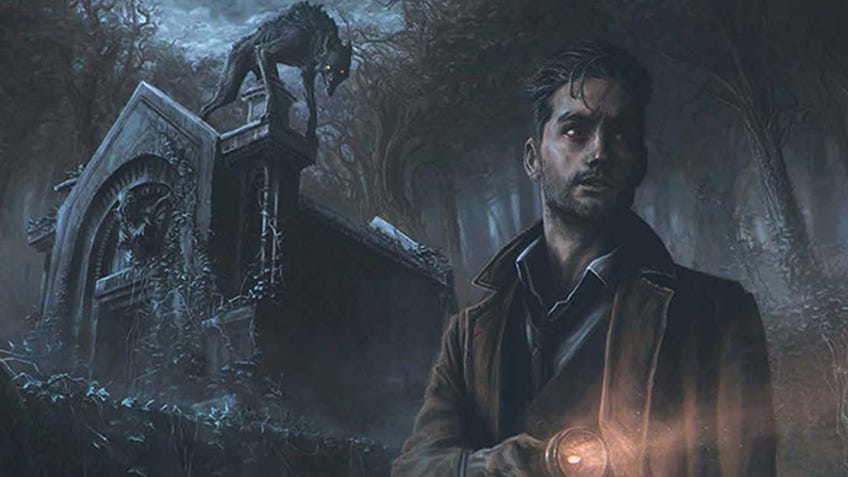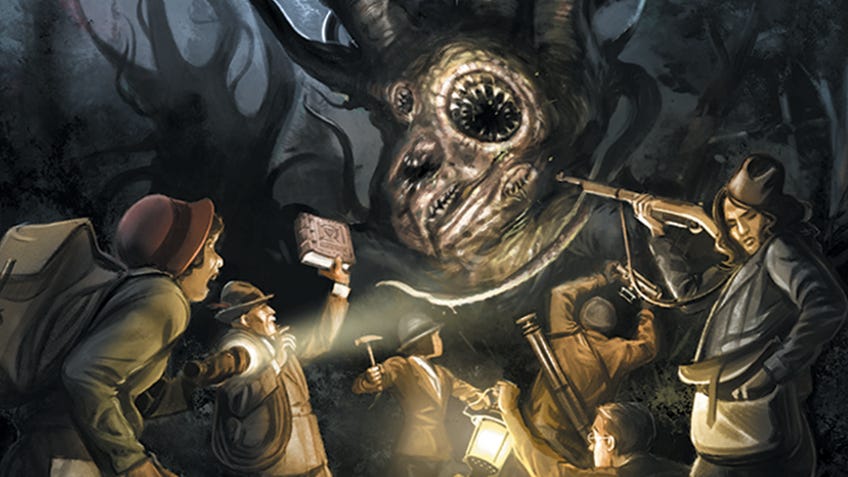Call of Cthulhu’s d100 dice rolls offer far more roleplaying freedom than D&D’s d20
When failure isn’t the end.
The 20-sided die has become synonymous with tabletop roleplaying games because of the success of Dungeons & Dragons.
D&D 5E’s entire gameplay system is almost entirely built around the d20, with players rolling the die to perform major actions like attacking, casting spells, avoiding danger and passing skill checks. The d20’s relatively wide range of numbers makes it suitable for attempting such a variety of actions, allowing for different variables – such as a character’s ability or their current condition – to be taken into account.
However, playing Baldur’s Gate 3 has recently made me aware of just how much D&D’s d20 gameplay system favours enforcing power-fantasy and character optimisation over effective storytelling. Despite its range of 20 numbers, the d20 system doesn’t feel like it encompasses the broad range of possibilities that TRPG storytelling can explore. The number players need to meet or exceed to perform their chosen action operates as a branch that splits in just two directions: success or failure.

If moving forward means successfully passing checks, players will deliberately have their characters approach situations in a way that will increase their chances of success. I find myself doing this in Baldur’s Gate 3 by having my player character be the one to start conversations just in case there’s a charisma-based check to pass. Whilst it feels great to succeed at something your character is built to be good at, it doesn’t do much to use the unique aspects of roleplaying to tell stories. This is fine when it comes to BG3, as it’s a video game and so will naturally be more restrictive. However, in terms of tabletop D&D 5E, it’s a disappointing approach compared to what players can achieve.
The percentile die system feels designed to support a variety of different potential outcomes beyond just one type of success and failure.
The greatest advantage that tabletop RPGs have over other forms of storytelling is their potential for freedom and unpredictability. By rolling dice to decide events, players can take narratives to places that they may have never imagined. Restricting this to just two possible outcomes is a waste of the possibilities that tabletop roleplaying can offer. Which is why I’ve found Call of Cthulhu’s percentile dice gameplay system to be a much better example of how dice-rolling can inform storytelling.
A horror RPG inspired by the Cthulhu mythos of Old Gods cruelly influencing humanity from beyond the stars, Call of Cthulhu is built on the Basic Roleplaying System that has players rolling a combination of d10s. As with D&D’s d20 system, the game master can invite their players to attempt to pass a skill check to have their character perform an action. However, the percentile die system feels designed to support a variety of different potential outcomes beyond just one type of success and failure.
Characters in Call of Cthulhu have base stats – which represent aspects like their strength and size – and skills, which are linked to taking more specific actions such as testing your knowledge of the occult. Different characters will have different skills depending on who they are and their life experiences, with some actions being almost entirely unachievable if a character has no proficiency.
Considering that Call of Cthulhu is a survival-horror RPG, it makes a lot of thematic sense to have success be less achievable.
Whenever players want to test a skill they roll two d10s, with the two numbers shown on each combining to make their result. For example, rolling a three on one d10 - representing tens - and a five on the other, representing single digits, creates a total of 35. In Call of Cthulhu, the aim is to roll as low as possible because skill numbers need to be equaled or rolled under for a success to occur. Skills that characters are especially accomplished at will have higher numbers, making it more likely that players will roll under them.
Most Call of Cthulhu characters will be mildly decent at a collection of things and only slightly good at a small handful of them. This ensures that players won’t just approach every situation in exactly the same way, as their character’s best skills will only be a tad better than their others – the margin for failure is much wider. Considering that Call of Cthulhu is a survival-horror RPG, where the threat of forces much greater than the characters overshadows them, it makes a lot of thematic sense to have success be less achievable.

Obtaining success is also a much more varied experience thanks to the three-tiered skill system. Whilst failure is often more likely, particularly good rolls are better recognised in Call of Cthulhu. Players can either get a basic success, an improved success or an excellent success when rolling for a skill test, with characters having three different numbers attached to each skill they’re proficient in. A basic success will see a character achieve what they wanted to do and nothing more, whereas an improved success will ensure that there are no negative consequences and an excellent success will grant the character an added bonus. This means that there are a variety of different branches that players’ actions can take the story down, each one creating a unique narrative. It also highlights how special successes are in Call of Cthulhu, with failure acting almost as a default.
Rather than serving as a vehicle for players to search for ways to win, the percentile system provides a playground for telling stories.
Making failure a greater likelihood than success means that it isn’t just a roadblock to progression, rather, it’s an alternative pathway for a story to move forward through. Call of Cthulhu is a tabletop roleplaying game about groups of ordinary people haphazardly stumbling across plots that are infinitely larger than they can fathom – meaning that failure is often the only option. However, failure can mean a lot of things in Call of Cthulhu, not just the existence of inaction. Trying and failing to do something is an essential story beat in this world.
The percentile system offers a sense of freedom through demystifying failure, encouraging players to try approaches beyond those their characters might only be good at. Rather than serving as a vehicle for players to search for ways to win, the percentile system provides a playground for telling stories in a way that only tabletop roleplaying can.


